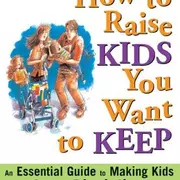
Elijah Wald
Elijah Wald's most popular book is Escaping the Delta with 10 saves and an average rating of 3.67.
Author Bio
Elijah Wald started playing guitar in the 1960s after seeing his first Pete Seeger concert at age seven. At seventeen, he went to New York to study with Dave Van Ronk, then spent most of the next dozen years hitchhiking and performing all over North America and Europe, as well as much of Asia and Africa, including several months studying with the Congolese guitar masters Jean-Bosco Mwenda and Edouard Masengo in eastern Zaire and lecturing for the United States Information Service in India and Central Africa. He also recorded two albums: Songster, Fingerpicker, Shirtmaker and Street Corner Cowboys.
In the early 1980s, Elijah began writing for the Boston Globe, and was in charge of the newspaper’s “world music” coverage for most of the 1990s, as well as contributing articles to various other newspapers and magazines. His books include Escaping the Delta: Robert Johnson and the Invention of the Blues, Josh White: Society Blues, Global Minstrels: Voices of World Music, Dave Van Ronk's memoir The Mayor of MacDougal Street, River of Song: Music Along the Mississippi, which accompanied the PBS series of the same name, and Narcocorrido, a survey of the modern Mexican ballads of drug smuggling and social issues. His latest book is How the Beatles Destroyed Rock ’n’ Roll: An Alternative History of American Popular Music. He has won a Grammy Award for his album notes to The Arhoolie Records 40th Anniversary Box, for which he was also nominated as a producer, and his books have won many awards, including an ASCAP-Deems Taylor award and an honorable mention for the American Musicological Society’s Otto Kinkeldey award.
In the last few years, Elijah has been teaching off and on at the University of California Los Angeles, performing music when possible, and contributing occasional pieces to the Los Angeles Times, along with various other writing projects and speaking engagements.
(from [Wald's press info page][1])
[1]: http://www.elijahwald.com/presspack.html